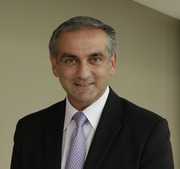23 Jun Over Half Sudden Cardiac Deaths in Young are Male; Over 25% Have Identifiable Genetic Cause
MedicalResearch.com Interview with:

Prof. Chris Semsarian
Professor Chris Semsarian
MBBS PhD MPH FRACP FAHMS FAHA FHRS FCSANZ
Professor of Medicine, University of Sydney
Cardiologist, Royal Prince Alfred Hospital
NHMRC Practitioner Fellow
Head, Molecular Cardiology Program
Centenary Institute,
Newtown NSW Australia
MedicalResearch.com: What is the background for this study?
Response: Sudden cardiac death is a tragic and devastating event at all ages, and especially in the young (aged under 35 years). Understanding the causes and circumstances of SCD in the young is critical if we are to develop strategies to prevent SCD in the young. Our study represents the first prospective, population-based study of SCD in the young across two nations, Australia and New Zealand.
MedicalResearch.com: What are the main findings?
Response:
• 490 deaths in 3 years (360 in Australia, 130 in NZ)
• Translates to 3-4 sudden cardiac death in young people each week in Australia and NZ.
• Majority (72%) were male.
• 55% of SCD at sleep or rest, with very few deaths during sports participation.
• 40% of all SCD initially unexplained. Of these, 27% had a clinically relevant genetic variant identified during genetic testing.
MedicalResearch.com: What should readers take away from your report?
Response: Sudden cardiac death in the young is an uncommon but tragic event. A comprehensive postmortem, coupled with genetic testing and clinical screening of the surviving relatives, identify a cause of death in over 75% of sudden cardiac death cases. Genetic testing of the postmortem blood sample (molecular autopsy) is an important part of the investigation process.
MedicalResearch.com: What recommendations do you have for future research as a result of this study?
Response: The ultimate goal is to prevent sudden cardiac death at all ages, and especially the young. Such prevention strategies should include both
(i) community-based public health approaches (e.g. everyone learning how to do PCR; availability of public access defibrillators), and
(ii) specific therapies in individuals at risk of SCD, such as lifestyle modifications, pharmacological treatments, and implantable cardioverter-defibrillator (ICD) therapy.
MedicalResearch.com: Thank you for your contribution to the MedicalResearch.com community.
Citation:
A Prospective Study of Sudden Cardiac Death among Children and Young Adults
N Engl J Med 2016; 374:2441-2452 June 23, 2016 DOI: 10.1056/NEJMoa1510687
Note: Content is Not intended as medical advice. Please consult your health care provider regarding your specific medical condition and questions.
More Medical Research Interviews on MedicalResearch.com
[wysija_form id=”5″]
Last Updated on June 23, 2016 by Marie Benz MD FAAD
